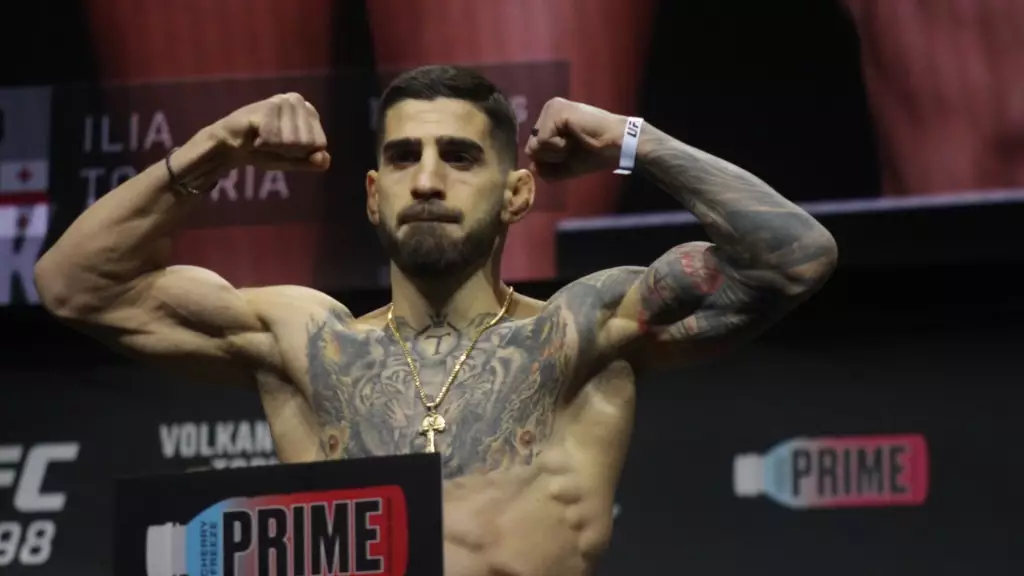In the dynamic world of mixed martial arts, fighters often look for avenues to assert their dominance and remain relevant within their respective divisions. Dan Hooker’s skepticism regarding Ilia Topuria’s potential move from featherweight to lightweight highlights the intricacies and politics of the sport. With an impressive record of 16-0 in MMA and a flawless 8-0 in the UFC, Topuria has risen rapidly through the ranks. However, recent comments about moving up in weight have raised eyebrows, specifically Hooker’s. Given Hooker’s own accomplishments and experience in the lightweight division, his critique carries significant weight.
Hooker’s assessment of Topuria appears rooted in a sentiment that fighters should honor commitments. Topuria recently made headlines after knocking out elite competitors like Alexander Volkanovski and Max Holloway, a feat that might lend some credence to conceiving a move up in weight. Still, Hooker captures a compelling angle when he likens Topuria’s strategy to a well-known playbook—suggesting that the young champion is leveraging sensationalism to remain in the spotlight. He points to Conor McGregor’s tactics as a template for generating buzz, insinuating that Topuria may not be genuinely interested in a transition but rather in continuing to cultivate his fame.
Hooker also delves into the theme of commitment within the sport. By rebuking Topuria for even considering a weight class change after agreeing to fight a respected teammate, he highlights a critical aspect of professional fighting: the integrity of agreements. Hooker’s frustration underlines a broader expectation that fighters should commit fully to the matches they agree to, especially when it involves competitive rivalry, camaraderie, or even gym affiliations. The ‘d*ckhead’ remark signifies a deeper unspoken code among fighters which emphasizes mutual respect and the necessity to stand by one’s word inside the octagon.
For Hooker, the recent resurgence to the upper echelons of the lightweight division, bolstered by victories over notable opponents, serves as a reminder that performance and consistency can overshadow mere headlines. Back to back wins against fighters like Claudio Puelles and Jalin Turner—culminating in a win against Mateusz Gamrot at UFC 305—highlight his own tenacity. As a seasoned fighter, Hooker advocates for authenticity—urging fellow competitors to focus on the hard work required to climb the ranks rather than resorting to theatrics.
In a sport marked by intense competition and fleeting fame, Dan Hooker’s criticism of Ilia Topuria serves as a reminder that authenticity and dedication to the sport must prevail. As discussions about upcoming plans and weight class changes ensue, the essence of being a true champion lies in the ability to back up words with action. Hooker’s contemplations push light on the expectations within the fight community, serving as a cautionary tale for emerging talents on how they navigate their journey in the unforgiving arena of the UFC.

